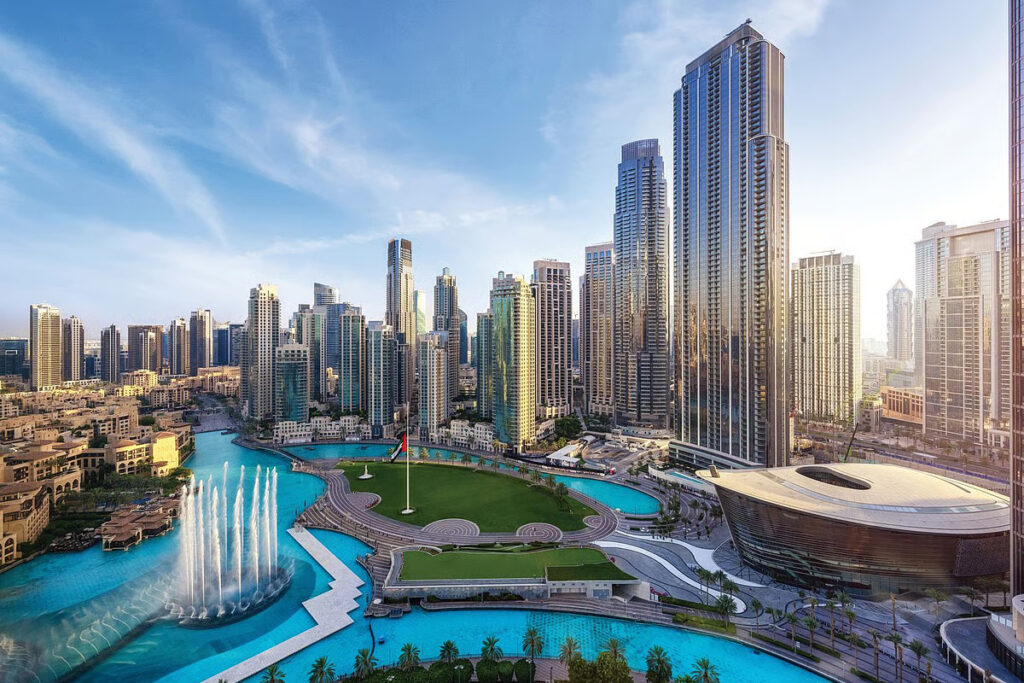In the face of intensifying geopolitical tensions across the Middle East, Dubai’s real estate market remains not just resilient but increasingly attractive to both regional and global investors. As neighboring regions experience varying degrees of instability, Dubai has emerged as a beacon of economic stability, security, and growth-driven urban development. This article explores why local market strength, global investor shifts, and policy-driven confidence are accelerating real estate value and demand in Dubai despite broader uncertainty.
Regional Unrest and Investor Behavior: Shifting Capital to Safe Havens

The Impact of Geopolitical Tensions on Investment Trends
From heightened military confrontations to shifting political alliances, regional unrest has a ripple effect on capital flows. However, rather than diminishing investor confidence altogether, such volatility has led to a strategic redirection of capital into politically stable zones—with Dubai consistently ranking as the safest destination in the GCC.
Flight to Quality and Security
Affluent investors from Lebanon, Syria, Iran, and even parts of Europe are channeling funds into Dubai’s high-end residential and commercial segments. With a globally respected rule of law, world-class infrastructure, and strong currency backing, Dubai has positioned itself as a global sanctuary for real estate investments.
Dubai’s Local Strength: Infrastructure, Policy, and Lifestyle
Government Initiatives Bolstering Market Confidence
Dubai’s government has rolled out forward-thinking reforms that continue to elevate its attractiveness to foreign buyers:
- Golden Visa Programs offer long-term residency for property investors.
- Zero income tax policy enhances net yields.
- 100% foreign ownership laws allow investors complete control over assets.
These initiatives provide not just ownership rights but socio-economic security, encouraging long-term capital anchoring.
Mega Infrastructure and Urban Expansion Projects
Dubai’s commitment to long-term urban development is evidenced by multibillion-dirham projects like:
- Dubai South and Expo City expansions
- Continued growth in Downtown, Business Bay, and Dubai Marina
- Upgrades to transportation infrastructure including Etihad Rail and Dubai Metro extensions
Such projects drive not only population and job growth but sustained demand for residential and commercial real estate.
Lifestyle Attractiveness: Beyond the Investment Case
The emirate offers world-class healthcare, education, and entertainment, positioning it not just as an investment hub but a relocation destination. Post-pandemic behavioral shifts have emphasized quality of life, safety, and digital infrastructure—areas where Dubai excels.
Foreign Investment Surge: Who Is Buying in Dubai Now?
GCC and MENA Buyers Leading the Charge
Political unrest across other parts of the Middle East has triggered a realignment of regional wealth into Dubai. High-net-worth individuals from Egypt, Jordan, and Iraq are increasingly converting liquid assets into Dubai freehold properties, recognizing the city’s long-term potential.
European and Asian Investor Participation Rising
With economic turbulence hitting parts of Europe and Asia, Dubai is drawing a diverse pool of buyers:
- Russians seeking asset protection and residence options
- Chinese buyers investing post-COVID as travel resumes
- Europeans hedging against inflation and currency devaluation
These investors are especially active in prime locations such as Palm Jumeirah, Emaar Beachfront, and Dubai Creek Harbour.
Real Estate Segment Analysis: Where the Demand Is Concentrated
Luxury Apartments and Villas
Dubai’s luxury market, from branded residences to waterfront villas, is experiencing unprecedented demand. In Q1 2025, prices in communities like Jumeirah Bay Island and Palm Jebel Ali surged over 20% YoY.
Affordable Housing for Expats and Mid-Income Earners
New developments in Dubailand, JVC, and Dubai South cater to the influx of middle-income expatriates. Flexible payment plans and government-backed financing options make homeownership more accessible, stimulating this market segment.
Commercial and Industrial Zones on the Rise
Free zones such as Dubai Silicon Oasis, DIFC, and DMCC are attracting both tenants and investors due to:
- Ease of doing business
- Flexible leasing models
- High rental yields compared to global benchmarks
As more multinational corporations move regional operations to Dubai, demand for grade-A office spaces is set to climb further.
Long-Term Market Outlook: Sustained Growth Through Strategic Advantage
Global Real Estate Alternatives Fall Short
While cities like London, New York, and Singapore offer mature property markets, Dubai’s tax-free regime, superior yields, and minimal regulatory burdens make it a more lucrative alternative.
Expo City and Dubai 2040 Urban Master Plan
Dubai’s strategic 2040 vision aims to increase green spaces, housing density, and sustainability measures. This, coupled with legacy benefits from Expo 2020, guarantees long-term appreciation in well-located assets.
Digital Transformation in Real Estate
Proptech integration, blockchain property transactions, and AI-driven analytics are streamlining Dubai’s real estate ecosystem, improving transparency and efficiency. This tech-enabled environment supports greater investor confidence and faster sales cycles.
Key Takeaways for Investors and Stakeholders
- Dubai’s economic resilience and political stability offer unmatched safety for investors amid global and regional unrest.
- Diversified investor inflows are driving demand in both luxury and affordable segments.
- Strategic infrastructure and policy shifts will support sustained capital appreciation well into the next decade.
- As Dubai continues to lead the region, first-mover investors stand to gain the most from early commitments.
Conclusion: Dubai’s Real Estate Defies the Odds
In a world riddled with economic and political uncertainties, Dubai real estate stands out as a model of resilience, growth, and investor magnetism. As global capital increasingly seeks safety and return on investment, Dubai delivers both—firmly cementing its position as the Middle East’s most stable and rewarding property market.
